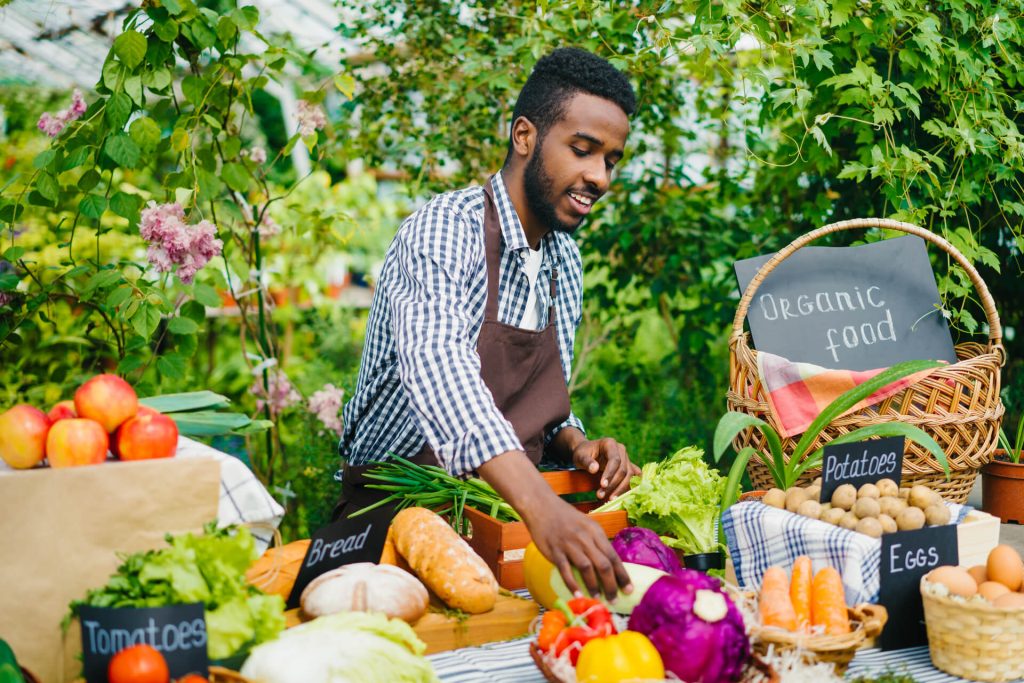Farmers markets offer a delightful way to access the freshest produce, connect with your community, and embrace a healthier lifestyle. Whether you’re a cooking enthusiast or simply looking for a weekend outing, visiting a local farmers market can bring numerous benefits. From farm-fresh fruits and vegetables to homemade goods, these markets provide a unique shopping experience that grocery stores simply can’t match.

Why Choose Farmers Markets Over Grocery Stores?
Many people assume that all fruits and vegetables are created equal, but this is far from the truth. Supermarkets often sell produce that has been artificially ripened using chemical gassing or transported long distances, which can impact its nutritional value and taste.
At farmers markets, the produce is typically harvested at peak ripeness and sold directly by local farmers. This means you’re getting food that is fresher, tastier, and more nutrient-dense. Additionally, you can engage with farmers to learn about their growing practices, ensuring that you’re consuming high-quality, organic, or pesticide-free produce whenever possible.
Health Benefits of Eating Fresh Produce
Dr. H. Kendall Barton, MD, a Family Medicine Physician Resident, emphasizes the importance of incorporating fresh fruits and vegetables into your diet. “Eating a diet rich in fresh produce can significantly lower the risk of chronic illnesses such as heart disease and Type 2 diabetes,” says Dr. Barton.
Some key health benefits of farm-fresh produce include:
- Higher Nutritional Value: Freshly picked fruits and vegetables contain more vitamins and minerals than store-bought alternatives.
- Reduced Exposure to Chemicals: Many local farmers use organic or minimal pesticide farming methods.
- Better Digestion and Gut Health: Fresh, fiber-rich produce supports a healthy digestive system.
- Weight Management: Eating whole foods instead of processed snacks can help with weight control.
More Than Just Produce: The Variety at Farmers Markets
Farmers markets are about more than just fruits and vegetables. Many also offer:
- Farm-raised meats and eggs – Free-range, hormone-free options often unavailable in grocery stores.
- Fresh seafood – Sustainably caught and locally sourced.
- Homemade baked goods – Artisan breads, pastries, and organic treats.
- Dairy products – Local cheeses, yogurts, and fresh milk.
- Natural honey and spices – Unprocessed sweeteners and locally sourced herbs for flavorful cooking.
- Handmade crafts and skincare products – Soaps, lotions, and candles made from organic ingredients.
- Pet treats and supplies – Many vendors cater to pet lovers with homemade dog treats and organic pet products.
Farmers Markets and Mental Wellness
Beyond nutrition, farmers markets also offer mental health benefits. Spending time outdoors has been proven to reduce stress, boost mood, and enhance overall well-being. Farmers markets provide a social environment where you can interact with neighbors, vendors, and artisans, making it a wonderful community experience.
Dr. Barton states, “Visiting a farmers market is not just about buying fresh food; it’s about fostering connections, supporting small businesses, and enjoying the outdoor atmosphere. Social interactions at these markets contribute to a sense of belonging and can positively impact mental health.”
How to Make the Most of Your Farmers Market Visit
To ensure a great experience at your local farmers market, consider the following tips:
- Go early for the best selection – Many vendors sell out of popular items quickly.
- Bring cash and reusable bags – Not all vendors accept credit cards.
- Talk to the farmers – Learn about their farming methods and get cooking tips.
- Try something new – Experiment with seasonal produce or unique homemade goods.
- Plan meals ahead – Having a list of ingredients in mind will help you shop efficiently.
Must-Visit Farmers Markets in Delaware
If you’re in Delaware, consider checking out these fantastic farmers markets:
- Riverwalk Farmers Market (Milford) – Fresh produce, meats, seafood, and crafts.
- New Castle Farmers Market (New Castle) – A mix of food, antiques, and artisanal goods.
- Rehoboth Beach Farmers’ Market (Rehoboth Beach) – Seasonal fruits, vegetables, and organic dairy.
- Historic Lewes Farmers Market (Lewes) – Locally grown, sustainable produce.
- Dutch Country Farmers Market (Middletown) – Home-baked goods, Amish products, and fresh poultry.
- Fifer’s Farm Store & Kitchen (Camden Wyoming) – Freshly harvested farm produce and homemade pies.
FAQs
1. Why should I shop at a farmers market instead of a grocery store?
Farmers markets offer fresher, locally grown produce without the chemical processing often found in supermarket produce. The food is more nutrient-rich and better tasting.
2. What are the health benefits of eating farm-fresh produce?
Fresh fruits and vegetables provide essential nutrients, help prevent chronic diseases, improve digestion, and contribute to a healthy weight.
3. Do farmers markets sell organic products?
Many vendors at farmers markets practice organic farming or use minimal pesticides. It’s always best to ask the farmer directly about their farming methods.
4. Are farmers markets more expensive than grocery stores?
Prices can vary, but many farmers markets offer competitive pricing, especially for in-season produce. Plus, you’re supporting local farmers rather than large corporations.
5. What should I bring to a farmers market?
Bring cash, reusable shopping bags, and a small cooler if you plan to buy perishable items like dairy, seafood, or meats.
6. What other items can I find at farmers markets besides fruits and vegetables?
In addition to produce, farmers markets often sell meats, dairy, baked goods, homemade crafts, honey, spices, and even pet treats.
7. Are farmers markets only open in the summer?
Some farmers markets operate year-round, while others are seasonal. Check the schedule of your local market to plan your visits accordingly.




